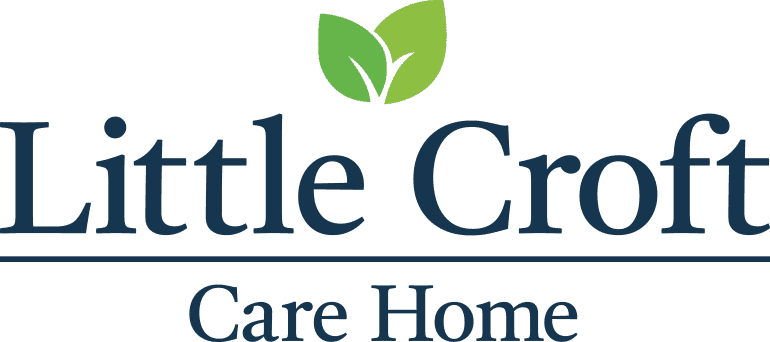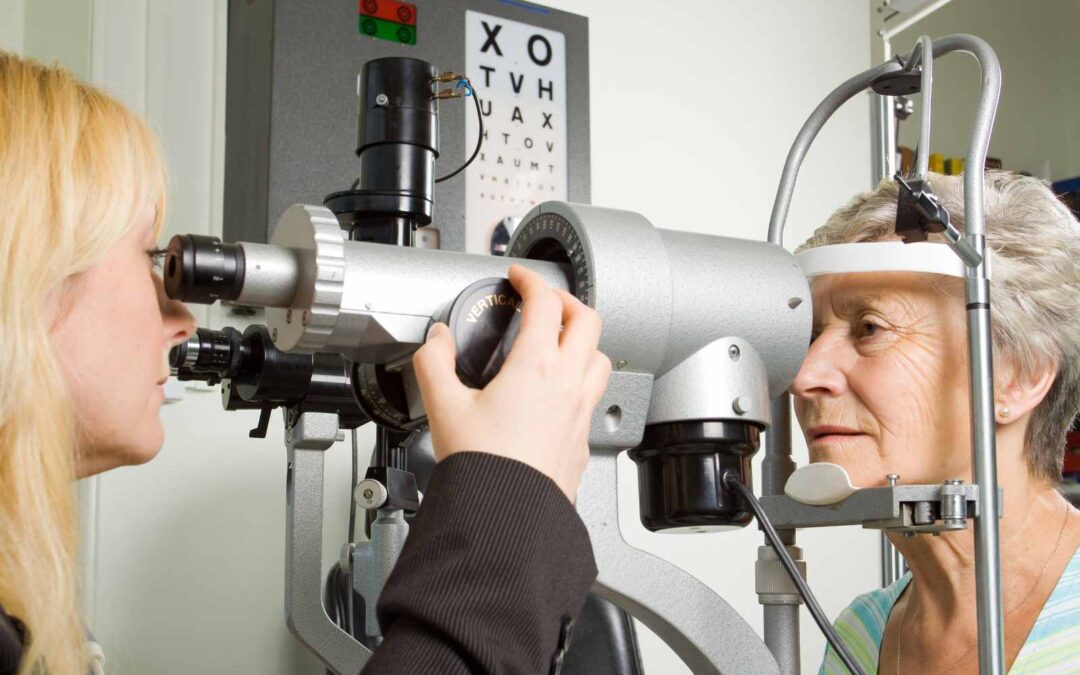Vision loss is a common issue among the elderly. It can affect independence, quality of life, and overall well-being. Understanding the causes and knowing how to help can make a significant difference to the elderly loved ones in your life.
At Little Croft, our team helps seniors with sight loss daily and therefore have an understanding of the primary causes of vision loss in seniors, and can provide practical tips for supporting a loved one experiencing sight loss.
What are the Most Common Causes of Age-Related Sight Problems?
Eye issues often take place gradually and for some, it can be difficult to notice them taking place. If caught early and treated by an eye specialist many problems can be fixed or be prevented from worsening. Here are several issues that may start to affect your elderly loved ones.
Age-Related Macular Degeneration
Age-related macular degeneration (AMD) is a common sight issue to affect people in their 50s and 60s. Alone, it cannot lead to complete blindness if left untreated but can make day to things like recognising faces and reading more difficult.
AMD is caused by damage to the macula, which is the part of the retina responsible for sharp and straight-ahead vision. AMD starts with a distortion of the central viewpoint of the eye and can eventually lead to a struggle to see anything with the centre of the eye; however, it does not affect peripheral vision.
The exact causes of AMD are unknown but there have been links between it and smoking, high blood pressure, genetics, and being overweight.
Age-Related Cataracts
Cataracts refers to clouds forming in the eye, and age-related cataracts is the most common form of this. In cataracts the clouds in the vision will increase in size over time causing misty vision if left untreated, this can eventually lead to blindness.
Diabetes-Related Retinopathy
Diabetic retinopathy is a complication of diabetes. It is damage to the retina caused by high blood sugar levels.
The retina requires a constant supply of blood which reaches it through tiny capillaries; if the blood reaching the retina has a high concentration of sugar, then over time this can cause damage to the retina. Diabetic retinopathy takes a long time, often years, to start to threaten the sight but it can cause blindness if left untreated.
Glaucoma
Glaucoma is caused by damage to the optic nerve, which is the nerve that connects the eyes and the brain. The most common cause of damage to the optic nerve is a build-up of fluid in the front of the eye which then causes an increase of pressure within the eye. Glaucoma develops slowly and starts with a deterioration of the peripheral vision, as this happens so slowly it can be difficult for people to know they have it and it is often only picked up in a routine eye test.
How Can You Help an Elderly Loved One From Developing Sight Loss?
Routine Eye Checks
The common theme with a huge proportion of sight problems is that they gradually get worse unless treatment is provided. This means that the most effective way to help your loved one prevent vision loss is to ensure that routine eye checks are carried out. This will help catch potential problems early before they develop into issues that may require more invasive surgical fixes, or result in irreversible vision damage and reduction in quality of life.
Know the Signs
If you know the signs of the more common vision issues, you can help identify when a vision specialist would be needed. Above we detailed some of the most common vision problems to look out for, but there are other more general signs too.
If your loved one wears glasses they may be cleaning them more regularly, trying to remove dirt or smudges that aren’t there. Also, excessive squinting when reading or watching TV is a telltale sign of a deterioration in vision. Even if it’s not one of the more threatening issues, it may just require a change in glasses prescription which can improve quality of life anyway.
Encourage a Healthy Lifestyle
Of course, this will help with so many other things beyond eye health, but many common eye problems are linked to high blood pressure, excessive alcohol and smoking, and other negative lifestyle choices.
How to Help a Loved One Cope With Vision Loss
If the signs have been missed and irreversible damage has taken place, then adjusting to damaged vision can be difficult, and your loved one may need extra support. There are several options for ways that you can help your loved one receive the support they need and maintain independence.
Making The Home More Accessible
If your loved one can still safely care for themselves then there are a few changes around the home that can be made to make day-to-day life easier.
In the kitchen, you can make sure that the most used utensils are in the most easy-to-reach places. Having dark bowls for light-coloured foods and light bowls for dark-coloured food can also help your elderly loved one to see what they are eating. Another option in the kitchen is to add a slow cooker to minimise the use of the hob where burns can be more common.
In the bathroom, non-reflective flooring that stands out from the walls can be helpful, as well as the addition of handrails, which should also stand out from the rest of the room (different colours or texture is good for this.)
In the hallway contrasting colours are also good for the rails, as well as the edges of steps to make them stand and help your loved one avoid trips and slips.
Assistance When Needed
Your loved one may need help with a specific regular task that you can help with, this could be something like driving to the shop to pick up groceries or cooking in general. Help with specific tasks can help your loved one to maintain their independence and can also offer time for you to enjoy each other’s company.
Respite Services
If you are committed to the care of your elderly loved one, then there may come a time when you need to deal with personal responsibilities or just take some time for yourself. In this instance support is available, we offer respite care services for whatever time frame you need. You can relax in the knowledge that your loved one is receiving the highest standard of care during this time.
External Care Options
With continued vision deterioration it can become difficult to ensure that your loved one is kept safe and happy. At this point, it is worth looking at either live-in care options, or a residential care home. At Little Croft, the dignity and independence of our residents is the focal point of everything we do. If you think this may be the best option for your loved one then we are always available for a chat, or you can visit our home yourself.
Vision issues if diagnosed early on can be prevented from resulting in too drastic of a lifestyle change, it is for this reason that routine eye checks are so important. If your loved one is struggling with vision loss, then there are options available and ways that you can ensure their comfort and safety.

